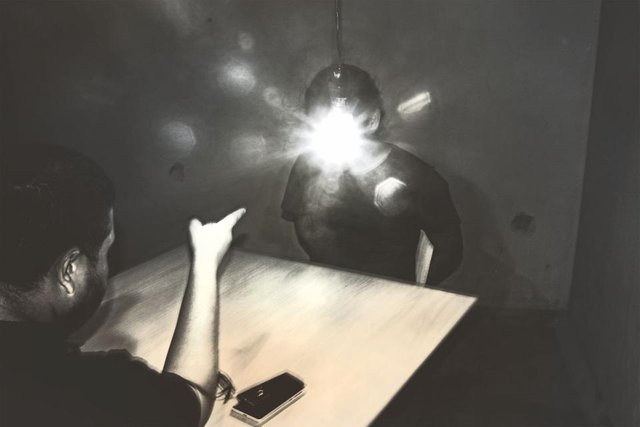Beating suspects not crimes
“Mother, seek mercy for me from the Prime Minister. Tell her that I am a regular student and that I am not involved with any political party. Please entreat her to revoke my remand. Please tell them not to beat me.” This was the plea of Rashed Khan, one of the leaders of the quota reform movement and a student of the Department of Banking and Insurance, University of Dhaka, when he got to meet his mother for a few minutes on his way to the court from police custody after completing his five-day remand.

Rashed was arrested for spreading defamatory speech and inciting violence and unrest through Facebook during the quota reform movement. Subsequently, he was placed on a five-day police remand—an unprecedented action in such cases. Furthermore, he was shown arrested in another case filed with Shahbagh Police Station on April 9 for ransacking and vandalising the residence of Dhaka University's Vice Chancellor and assaulting the police and preventing them from discharging their duties. On July 8, Rashed was remanded again for 10 days in these two cases. Saleha's account and Rashed's plea suggest that he had likely undergone physical torture in police custody.
In fact, allegations against the Bangladesh Police of inflicting torture on persons in custody is nothing new. According to Ain O Salish Kendra, in 2017, 53 people lost their lives in custody; 20 among them were convicts and 33 were detainees. In the first half of 2018, 25 people, 14 of whom were detainees, have reportedly died in police custody. For instance, on March 12 this year, Chhatra Dal leader Jakir Hossain died in prison after spending three days in remand. Jakir's younger sister Sultana Rajia told The Daily Star, “My brother was in good health before he was arrested. I do not know what could have happened to him in remand that he could not survive.”
Those who returned from remand revealed a horrific description of torture and abuse in the name of interrogation, as narrated in a research report in 2015 titled “Arrest without Warrant and Remand: Directives from the High Court and Reality” by Bangladesh Legal Aid and Services Trust (BLAST), a human rights and legal aid organisation. A 32-year-old detainee claimed, “I was repeatedly tortured by the police during my four-day remand. I had heard that police sometimes use hot eggs to torture people, but my experience was more terrible than that. They inserted hot red chillies through my anus. I fell extremely sick but they didn't give me any medical treatment. I arranged my own treatment after getting bail from the court.” Another respondent of the research stated, “I was arrested several years earlier. Police didn't inform me about reason behind my arrest. Immediately after taking me to the station, they started to beat me up. They forced me to confess that I had illegal arms in my possession. After producing me before the court, the police again took me into their custody and tortured me for three days. I was also threatened of more brutal consequences if I spoke about the torture in remand before the court.”